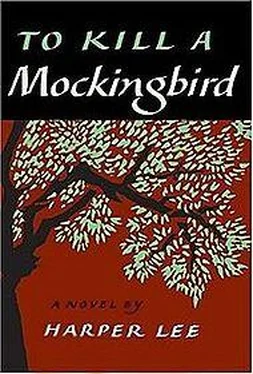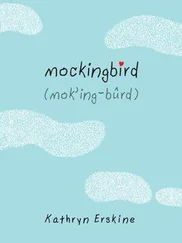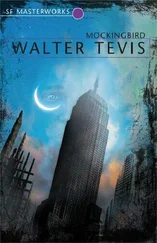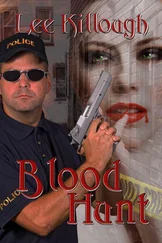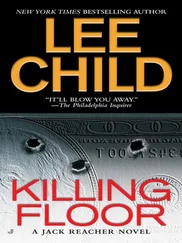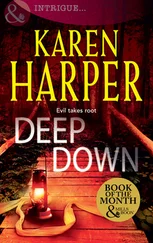Lee Harper - To Kill a Mockingbird
Здесь есть возможность читать онлайн «Lee Harper - To Kill a Mockingbird» весь текст электронной книги совершенно бесплатно (целиком полную версию без сокращений). В некоторых случаях можно слушать аудио, скачать через торрент в формате fb2 и присутствует краткое содержание. Жанр: Современная проза, на английском языке. Описание произведения, (предисловие) а так же отзывы посетителей доступны на портале библиотеки ЛибКат.
- Название:To Kill a Mockingbird
- Автор:
- Жанр:
- Год:неизвестен
- ISBN:нет данных
- Рейтинг книги:3 / 5. Голосов: 1
-
Избранное:Добавить в избранное
- Отзывы:
-
Ваша оценка:
- 60
- 1
- 2
- 3
- 4
- 5
To Kill a Mockingbird: краткое содержание, описание и аннотация
Предлагаем к чтению аннотацию, описание, краткое содержание или предисловие (зависит от того, что написал сам автор книги «To Kill a Mockingbird»). Если вы не нашли необходимую информацию о книге — напишите в комментариях, мы постараемся отыскать её.
To Kill a Mockingbird — читать онлайн бесплатно полную книгу (весь текст) целиком
Ниже представлен текст книги, разбитый по страницам. Система сохранения места последней прочитанной страницы, позволяет с удобством читать онлайн бесплатно книгу «To Kill a Mockingbird», без необходимости каждый раз заново искать на чём Вы остановились. Поставьте закладку, и сможете в любой момент перейти на страницу, на которой закончили чтение.
Интервал:
Закладка:
Mr. Gilmer and Atticus exchanged glances. Atticus was sitting down again, his fist rested on his cheek and we could not see his face. Mr. Gilmer looked rather desperate. A question from Judge Taylor made him relax: “Mr. Ewell, did you see the defendant having sexual intercourse with your daughter?”
“Yes, I did.”
The spectators were quiet, but the defendant said something. Atticus whispered to him, and Tom Robinson was silent.
“You say you were at the window?” asked Mr. Gilmer.
“Yes sir.”
“How far is it from the ground?”
“’bout three foot.”
“Did you have a clear view of the room?”
“Yes sir.”
“How did the room look?”
“Well, it was all slung about, like there was a fight.”
“What did you do when you saw the defendant?”
“Well, I run around the house to get in, but he run out the front door just ahead of me. I sawed who he was, all right. I was too distracted about Mayella to run after’im. I run in the house and she was lyin’ on the floor squallin’—”
“Then what did you do?”
“Why, I run for Tate quick as I could. I knowed who it was, all right, lived down yonder in that nigger-nest, passed the house every day. Jedge, I’ve asked this county for fifteen years to clean out that nest down yonder, they’re dangerous to live around ‘sides devaluin’ my property—”
“Thank you, Mr. Ewell,” said Mr. Gilmer hurriedly.
The witness made a hasty descent from the stand and ran smack into Atticus, who had risen to question him. Judge Taylor permitted the court to laugh.
“Just a minute, sir,” said Atticus genially. “Could I ask you a question or two?”
Mr. Ewell backed up into the witness chair, settled himself, and regarded Atticus with haughty suspicion, an expression common to Maycomb County witnesses when confronted by opposing counsel.
“Mr. Ewell,” Atticus began, “folks were doing a lot of running that night. Let’s see, you say you ran to the house, you ran to the window, you ran inside, you ran to Mayella, you ran for Mr. Tate. Did you, during all this running, run for a doctor?”
“Wadn’t no need to. I seen what happened.”
“But there’s one thing I don’t understand,” said Atticus. “Weren’t you concerned with Mayella’s condition?”
“I most positively was,” said Mr. Ewell. “I seen who done it.”
“No, I mean her physical condition. Did you not think the nature of her injuries warranted immediate medical attention?”
“What?”
“Didn’t you think she should have had a doctor, immediately?”
The witness said he never thought of it, he had never called a doctor to any of his’n in his life, and if he had it would have cost him five dollars. “That all?” he asked.
“Not quite,” said Atticus casually. “Mr. Ewell, you heard the sheriff’s testimony, didn’t you?”
“How’s that?”
“You were in the courtroom when Mr. Heck Tate was on the stand, weren’t you? You heard everything he said, didn’t you?”
Mr. Ewell considered the matter carefully, and seemed to decide that the question was safe.
“Yes,” he said.
“Do you agree with his description of Mayella’s injuries?”
“How’s that?”
Atticus looked around at Mr. Gilmer and smiled. Mr. Ewell seemed determined not to give the defense the time of day.
“Mr. Tate testified that her right eye was blackened, that she was beaten around the—”
“Oh yeah,” said the witness. “I hold with everything Tate said.”
“You do?” asked Atticus mildly. “I just want to make sure.” He went to the court reporter, said something, and the reporter entertained us for some minutes by reading Mr. Tate’s testimony as if it were stock-market quotations: “...which eye her left oh yes that’d make it her right it was her right eye Mr. Finch I remember now she was bunged.” He flipped the page. “Up on that side of the face Sheriff please repeat what you said it was her right eye I said—”
“Thank you, Bert,” said Atticus. “You heard it again, Mr. Ewell. Do you have anything to add to it? Do you agree with the sheriff?”
“I holds with Tate. Her eye was blacked and she was mighty beat up.”
The little man seemed to have forgotten his previous humiliation from the bench. It was becoming evident that he thought Atticus an easy match. He seemed to grow ruddy again; his chest swelled, and once more he was a red little rooster. I thought he’d burst his shirt at Atticus’s next question:
“Mr. Ewell, can you read and write?”
Mr. Gilmer interrupted. “Objection,” he said. “Can’t see what witness’s literacy has to do with the case, irrelevant’n’immaterial.”
Judge Taylor was about to speak but Atticus said, “Judge, if you’ll allow the question plus another one you’ll soon see.”
“All right, let’s see,” said Judge Taylor, “but make sure we see, Atticus. Overruled.”
Mr. Gilmer seemed as curious as the rest of us as to what bearing the state of Mr. Ewell’s education had on the case.
“I’ll repeat the question,” said Atticus. “Can you read and write?”
“I most positively can.”
“Will you write your name and show us?”
“I most positively will. How do you think I sign my relief checks?”
Mr. Ewell was endearing himself to his fellow citizens. The whispers and chuckles below us probably had to do with what a card he was.
I was becoming nervous. Atticus seemed to know what he was doing-but it seemed to me that he’d gone frog-sticking without a light. Never, never, never, on cross-examination ask a witness a question you don’t already know the answer to, was a tenet I absorbed with my baby-food. Do it, and you’ll often get an answer you don’t want, an answer that might wreck your case.
Atticus was reaching into the inside pocket of his coat. He drew out an envelope, then reached into his vest pocket and unclipped his fountain pen. He moved leisurely, and had turned so that he was in full view of the jury. He unscrewed the fountain-pen cap and placed it gently on his table. He shook the pen a little, then handed it with the envelope to the witness. “Would you write your name for us?” he asked. “Clearly now, so the jury can see you do it.”
Mr. Ewell wrote on the back of the envelope and looked up complacently to see Judge Taylor staring at him as if he were some fragrant gardenia in full bloom on the witness stand, to see Mr. Gilmer half-sitting, half-standing at his table. The jury was watching him, one man was leaning forward with his hands over the railing.
“What’s so interestin’?” he asked.
“You’re left-handed, Mr. Ewell,” said Judge Taylor. Mr. Ewell turned angrily to the judge and said he didn’t see what his being left-handed had to do with it, that he was a Christ-fearing man and Atticus Finch was taking advantage of him. Tricking lawyers like Atticus Finch took advantage of him all the time with their tricking ways. He had told them what happened, he’d say it again and again — which he did. Nothing Atticus asked him after that shook his story, that he’d looked through the window, then ran the nigger off, then ran for the sheriff. Atticus finally dismissed him.
Mr. Gilmer asked him one more question. “About your writing with your left hand, are you ambidextrous, Mr. Ewell?”
“I most positively am not, I can use one hand good as the other. One hand good as the other,” he added, glaring at the defense table.
Jem seemed to be having a quiet fit. He was pounding the balcony rail softly, and once he whispered, “We’ve got him.”
I didn’t think so: Atticus was trying to show, it seemed to me, that Mr. Ewell could have beaten up Mayella. That much I could follow. If her right eye was blacked and she was beaten mostly on the right side of the face, it would tend to show that a left-handed person did it. Sherlock Holmes and Jem Finch would agree. But Tom Robinson could easily be left-handed, too. Like Mr. Heck Tate, I imagined a person facing me, went through a swift mental pantomime, and concluded that he might have held her with his right hand and pounded her with his left. I looked down at him. His back was to us, but I could see his broad shoulders and bull-thick neck. He could easily have done it. I thought Jem was counting his chickens.
Читать дальшеИнтервал:
Закладка:
Похожие книги на «To Kill a Mockingbird»
Представляем Вашему вниманию похожие книги на «To Kill a Mockingbird» списком для выбора. Мы отобрали схожую по названию и смыслу литературу в надежде предоставить читателям больше вариантов отыскать новые, интересные, ещё непрочитанные произведения.
Обсуждение, отзывы о книге «To Kill a Mockingbird» и просто собственные мнения читателей. Оставьте ваши комментарии, напишите, что Вы думаете о произведении, его смысле или главных героях. Укажите что конкретно понравилось, а что нет, и почему Вы так считаете.
